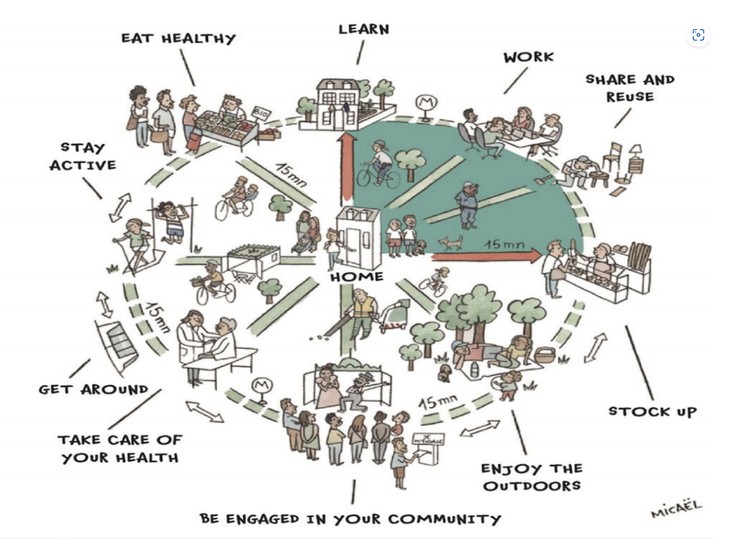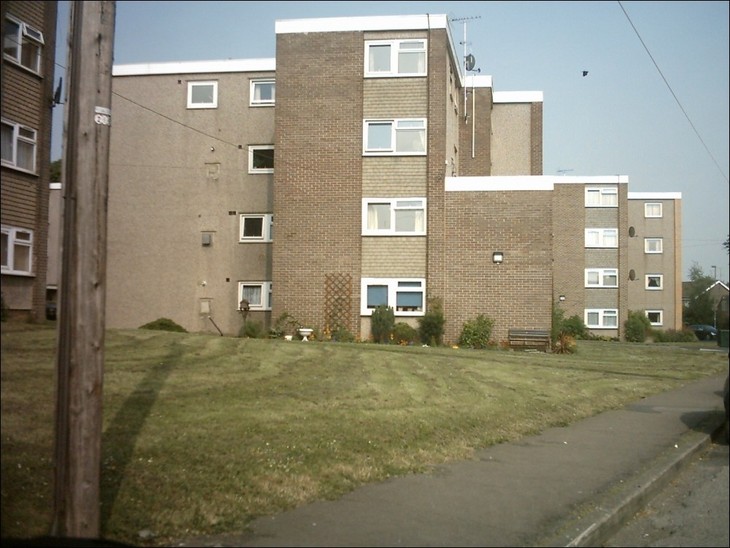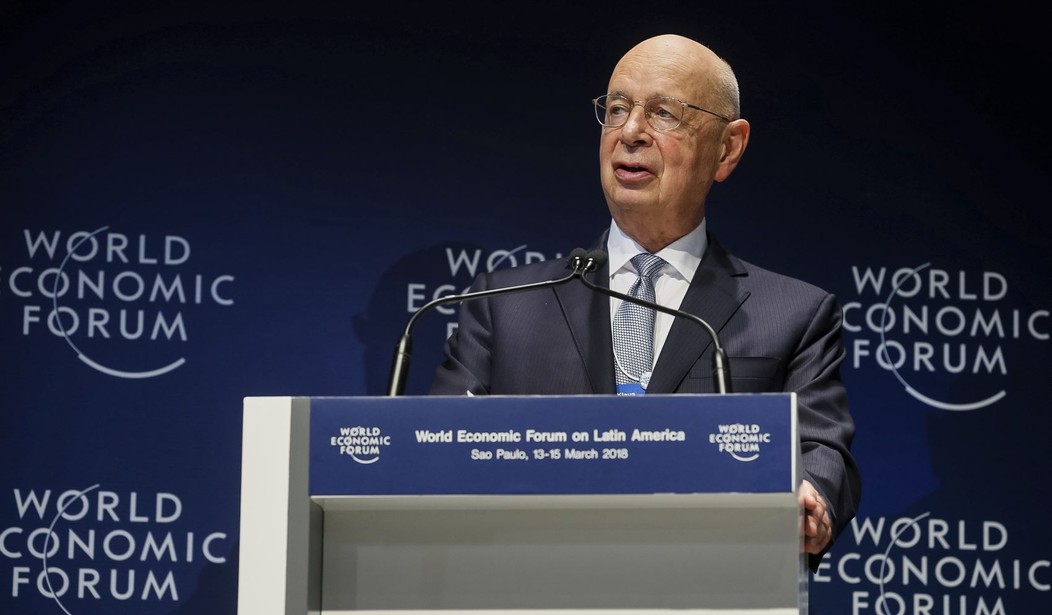It sounds crazy, and it is. Climate lockdowns are in your future.
Climate lockdowns are no crazier than Europeans closing down farms, and far easier to explain if not maintain. Screwing with middle to upper class folks is tougher to get away with, but they will surely try.
It’s already happening across the pond, and is coming to you soon enough.
Oxfordshire County Council Pass Climate Lockdown ‘trial’ to Begin in 2024
Oxfordshire County Council yesterday approved plans to lock residents into one of six zones to ‘save the planet’ from global warming. The latest stage in the ’15 minute city’ agenda is to place electronic gates on key roads in and out of the city, confining residents to their own neighbourhoods.
Under the new scheme if residents want to leave their zone they will need permission from the Council who gets to decide who is worthy of freedom and who isn’t. Under the new scheme residents will be allowed to leave their zone a maximum of 100 days per year, but in order to even gain this every resident will have to register their car details with the council who will then track their movements via smart cameras round the city.
You are undoubtedly aware of Oxfordshire. It’s where one of the oldest universities in the world is based, which explains why the city council can get away with this madness. Oxford professors might just be OK with this idiocy.
Oxfordshire County Council, which is run by Labour, the Liberal Democrats and the Green Party, secretly decided to divide-up the city of Oxford into six ‘15 minute’ districts in 2021 soon after they were elected to office. None of the councillors declared their intention of imprisoning local residents in their manifestos of course, preferring to make vague claims about how they will ‘improve the environment’ instead.
Every resident will be required to register their car with the County Council who will then monitor how many times they leave their district via number plate recognition cameras. And don’t think you can beat the system if you’re a two car household. Those two cars will be counted as one meaning you will have to divide up the journeys between yourselves. 2 cars 50 journeys each; 3 cars 33 journeys each and so on.
Don’t worry. You won’t exactly need a passport to move around. You can escape using human power, such as your legs or a bicycle. No armed guards will roam the streets, not even a Bobby. The enforcement mechanism will be more along the lines of China’s social credit system, with remote monitoring and punishments.
As usual, this horrible idea comes from our friends at the World Economic Forum. They care so deeply about us that they have a plan for every moment of our lives and every movement that we consider making. For our own good.
It all stems from their plans for a “Great Reset” post COVID. The WEF and the Davos set have made clear–not in a conspiratorial way, but announcing it with great fanfare–that COVID has created an opportunity to reset society along more socialist and top-down lines. They are big believers in technocracy, as long as they are the technocrats who get to design and run everything.
Everything in their lives, and everything in yours as well.
Urbanism trends come and go: Broadacre City, Radiant City, EcoCity. Yet the “15-minute city” concept—which implies having all necessary amenities within a short walk, bike ride, or public transit trip from one’s home—has demonstrated stickiness not just as an idea, but as a powerful tool for action – from Paris to Seoul, from Bogotá to Houston.
For longtime urbanists, the 15-minute city seemed to merely repackage the historic urban pattern of development: walkable, mixed-used districts. Old wine, new bottle, as the saying goes. But for a new framing to ignite a global urbanism movement, clearly there’s more going on.
The obvious, yet incomplete, answer is the pandemic. Would Paris’s Mayor Anne Hidalgo have pushed for progressive urban design without this framing? Undoubtedly. But with COVID-19 and its variants keeping everyone home (or closer to home than usual), the 15-minute city went from a “nice-to-have” to a rallying cry. Meeting all of one’s needs within a walking, biking or transit distance was suddenly a matter of life and death. The pandemic created an urgency around equitable urbanism that sidelined arguments about bike lanes and other “amenities” that have roiled communities for years.
You can see why the Elite keeps pushing COVID panic. It is the necessary foundation for their larger plans. As long as they can keep the population scared half to death they can use the “emergency” to change everything else. The idea being that by the time the pandemic is “over” their plans are already implemented.

There is something alluring about the vision they present, but only in the abstract. Mobility and freedom are inextricably intertwined, which is why every totalitarian regime restricts the mobility of its citizens. It is literally a circumscribing of your world. They present this as living in downtown Paris, but in reality it will be more the drab Council housing in England.

In prior centuries most human beings would have spent most of their lives within miles of where they are born. Now a person can literally travel millions of miles in their lifetime, and the typical person will travel hundreds of thousands. I travel very little and put 7-8000 miles on my car a year, which would have been an unimaginable amount of travel before the 20th century.
Circumscribing human mobility is a vital step in circumscribing our lives. A couple decades ago they called it the New Urbanism, and now it is the “15-minute city,” but the idea is the same: substitute private mobility for government-directed. That is why transit is such a key priority for urban planners.
The argument is that it is for your own good, but that is clearly false. Transit determines where you can go and when. Where you can live, work, and recreate. And lest you believe that you are giving up a measure of convenience for clear benefits, look at how poorly taken care of and unreliable most transit systems are. Washington DC, the capitol of the United States, is barely keeping their system afloat.
Mass transit systems were an amazing innovation and a net benefit to human mobility when introduced. In old, densely packed cities where horses provided the fastest transportation at enormous expense, mass transit was a huge advance. But save for a few cities where density is extremely high, transit is now highly limiting for the average person. People think New York and Boston, but as 18th century cities they are anomalies in the US. For most of us cars are a necessity, and an enormous convenience. Try going to Home Depot and taking a bus home with your plywood.
Climate change and COVID are essentially the same: “crises” designed to convince you to radically change your lives and reconstruct them along state designed principles.
It is difficult to see how something like this could be implemented in a country like the US, where distances are huge and compliance with the authorities has been low–at least until COVID it was low.
But expect them to try. Allowing people to vote with their feet is not in their plans.








